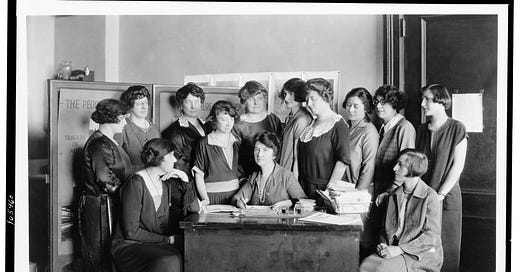Margaret Sanger: How should we contextualize her legacy?
Once portrayed as heroic, the birth control crusader has been condemned by some and heavily criticized by others. Many of the criticisms lack an adequate description of her era.
Birth control historians have watched in recent years as Margaret Sanger’s legacy has been questioned and misrepresented.
In New York City, her name was removed from the Planned Parenthood clinic. PPFA, which Sanger founded, also removed her name from its most prestigious award, which is given to someone who has been a great champion of reproductive rights. The current president, Alexis McGill Johnson, wrote an editorial in the New York Times in 2021, distancing the organization from Sanger. Johnson criticized Margaret Sanger for her connection to White supremacist and eugenicist groups.
In meetings with major leaders, including several in New York City, most disagreed with the decision to do that. They told me that Sanger had been revolutionary in her time and that the eugenics movement was far more complicated than recent portrayals. Former Planned Parenthood President Faye Wattleton, the first black woman to lead Planned Parenthood, knew everything Johnson knew when she wrote her autobiography Life on the Line.
Wattleton, however, embraced Sanger’s legacy. So do many others familiar with her life and work.
"A hundred years ago in this country, eugenics was a widely endorsed and popular set of ideas," said Sanger biographer and feminist activist Ellen Chesler.. "Eugenics had a progressive and a conservative wing.. Sanger entered the conversation from the left, along with such luminaries of the era as WEB DuBois of the NAACP and Roger Baldwin of the ACLU. These thinkers acknowledged that inherited factors influence human outcomes, but they believed that genes attach to individuals, not groups.. They opposed eugenic orthodoxy that created hierarchies of race, ethnicity, class, creed, or gender.
“They did, however, sanction public investment to favor the most gifted and talented among all populations as a way to open opportunities to those who had long been discriminated against... This ableism inaugurated a long tradition of meritocracy in this country -- IQ testing, gifted and talented programs in public schools, and the like. But it also allowed for programs that sterilized those deemed feeble-minded, programs actually upheld by a 1927 ruling of the U.S. Supreme Court -- impossible as all this is to fathom today.
“The historical circumstances of this complexity are hard to convey. Proponents of racial justice also endorsed some aspects of eugenics and did not acknowledge the inconsistencies.. Today, Sanger has become a collateral victim of the abortion wars -- a convenient scapegoat. If you repeat half-truths enough times, they become the whole truth. Sanger's work was pivotal in reconceptualizing health as a human right and advocating for women's social and economic freedoms. Despite her imperfections, she was a major historical figure, widely recognized as a great liberator in her own time. "
Chesler wrote a fantastic book about Sanger’s life, Woman of Valor: Margaret Sanger and the Birth Control Movement in America. I recommend it to everyone.
Martin Luther King Jr. also admired Sanger. When King was in his first parish in Montgomery, Alabama, he joined a Planned Parenthood committee that distributed literature on unwanted pregnancies. He saw her as a model social reformer. When he spoke before PPFA on May 5, 1966, King paid tribute to Sanger’s legacy.
“There is a striking kinship between our movement and Margaret Sanger’s early efforts,” King said. “She, like we, saw the horrifying conditions of ghetto life…Like we, she was a direct actionist–a nonviolent resister. She was willing to accept scorn and abuse until the truth she saw was revealed to millions.
George Grant is perhaps the antiabortion movement’s most formidable writer and authored Killer Angel: A Short Autobiography of Planned Parenthood’s Founder Margaret Sanger. He has compared Sanger to Hitler, Mussolini, and Stalin. Sanger did not, however, share the politics of any of them, and was not aligned with any American groups who were. For example, Sanger criticized Mussolini in 1938 for his policies promoting population growth in Italy. She argued that countries with high birth rates were more likely to go to war, and she singled out Japan, Germany, and Italy.
Many of Grant’s analyses have entered the mainstream and have been accepted by both the right and left segments of the American political spectrum. In the 1960s and 1970s, members of the Black Panthers argued that Planned Parenthood was guilty of genocide against black people. Kanye West has also pushed that narrative. It’s understandable why Planned Parenthood President Alexis McGill Johnson wanted to build bridges between the reproductive rights movement and Black people skeptical of it for good reasons.
But I and others feel her legacy should be restored because it hasn’t been fully contextualized. And we need to avoid condemning historical figures with a tweet or a post limited by words when life and the past are so complex that you need pages to explain them.






I completely agree. We need to restore her legacy.